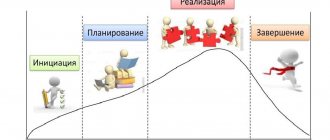For successful people, continuous personal growth and development is critical. They are at the peak of their careers but still find time in their busy schedules to endlessly push themselves out of their comfort zone and discover more of their inner potential.
Personal growth is the process by which a person gets to know himself and continually develop himself to realize his full potential. Personal growth is an important part of a person's growth, maturity, success and happiness.
So what does personal growth mean to us? It is a lifelong process of spiritual, physical and social growth. It is a process of actively learning and developing new skills long after completion of formal education.
The beauty of personal growth is that the possibilities are endless—you can learn as much as you want in your field. And as you continue to grow, you will embark on an unusual and meaningful path in life.
What is personal growth?
Personal growth is the continuous process of understanding and developing yourself in order to reach your potential. Personal development is a vital part of a person's growth, maturity, success and happiness. To the question: what is personal growth? The answer is obvious: it is the basis of emotional, physical, intellectual and spiritual health.
Personal growth has a profound impact on every aspect of our lives. As we grow on a personal level, we become more passionate about life in general. We are naturally more motivated because learning and growth add motivation and excitement.
Personal growth and self-development give us both the incentive and the means to become the best version of ourselves. As paradoxical as it may be, personal growth seems to expand our belief system to include the people around us, rather than becoming more selfish. As our world expands, so does our understanding of the possibilities around us. This mindset of possibility fills us with a mood of eager anticipation as we begin each new day.
ND - national income
National income is GNP minus the value of all funds spent.
ND = GNP-depreciation costs + indirect taxes.
National average labor productivity
Labor productivity is the quantity and quality of products produced per unit of time.
The country's average labor productivity is calculated as follows: the volume of products produced per year in the sphere of material production is divided by the number of workers employed throughout the country in this production. Of course, this is an average figure, but it helps to see the dynamics of production development in the state over a certain period of time, more often than not, over a year.
Factors influencing labor productivity
- Level of qualifications and professionalism of workers
- The degree of interest of employees in the results of their work
- Level of application of scientific and technological achievements, introduction of new technologies
- Intensity, that is, speed of work, etc.
Psychology of personal growth
The first level of personal growth involves growth in our outer behavior. The second level of personal growth requires a psychological change in our attitudes and values. Psychological growth means a qualitative change in a person's character, which can be brought about by conscious intention and effort. This psychological change also increases our capacity for social achievement, but does so by expanding the personality, not just through greater external effort. Psychological personal growth can also be described as qualitative improvement in those qualities that make a person a better and more enlightened person who expresses higher values and is able to make a greater contribution to the overall well-being of society.
Psychological growth of the individual is achieved through:
- Increased level of self-awareness and understanding of other people;
- Raising the level of personal ideals and aspirations;
- Acquiring a more positive attitude towards yourself, other people and life;
- Acquiring higher psychological values that support and enrich human relationships;
- Development of your individuality.
Many people mistake psychological growth for greater freedom to do what we want, greater ability to assert ourselves and live for ourselves. But these things are actually an expression of the desire to make oneself happy through more self-indulgence. They don't bring lasting happiness or make us better people. Psychological growth requires effort to gain greater self-knowledge and self-control, to master our natural impulses and direct our energy towards something better and higher. If you make a list of the people you most admired and respected, you can easily identify characteristics associated with psychological growth—living for an ideal, courage of conviction, willingness to take risks, integrity, kindness, generosity, service to others, etc.
How do we know when we are growing psychologically? We grow psychologically when:
- We are more self-reliant: we rely on ourselves more than we expect other people to do things for us.
- We are more responsible: we feel more personally responsible for the people around us or for the work in which we are involved, rather than depending on others and blaming them for what goes wrong.
- We strive for higher achievements: we are no longer satisfied with feeling safe or comfortable, or receiving recognition and recognition from others. We want to live for something more than just survival or social recognition. We want to contribute.
- We have higher standards : We don't like being as good or successful as other people, or receiving their approval. We strive for something more than just recognition or public approval.
- We are more positive: we react less to other people, no longer consider ourselves superior to others, and no longer envy those who achieve more than us. We do not try to dominate others or impose our will on them. We are more generous, kind and willing to give ourselves to other people rather than demanding anything from them.
- We live by higher values: we respect others more, our thoughts are more objective, our words are more truthful, our actions are more honest, and our relationships are more harmonious.
- We act in accordance with our understanding, not our impulses: we do what we think is right, not what we feel or find convenient. We are no longer carried away by our passions, impulses or preferences. We reflect more on our own behavior to better understand ourselves. We reflect more on the behavior of others to see their point of view and become more tolerant.
Read more: Paradigms in psychology
What are the stages of economic growth?
American scientist W. Rostow in the early 60s. The concept of “five stages of growth” was developed, recognized but not undisputed, and is currently used.
- The first stage is traditional society (agriculture, routine technology, land ownership, land rent).
- The second stage is a transitional society, the period of creating the preconditions for a “shift” (take-off): an increase in capital investment per capita, an increase in agricultural productivity, the emergence of “entrepreneurs”.
- The third stage is the “shift”, industrial revolution, accumulation of capital, rapid growth of industry, radical change in production methods.
- The fourth stage is the “maturity” of industrial society: the rapid development of industry, the emergence of new branches of production, and an increase in the share of skilled labor.
- The fifth stage is the era of “mass consumption”, the main problems of society become problems of consumption, not production, the main industries are the service sector and the production of consumer goods, and not traditional industries.
Tips, techniques and strategies for self-development, methods of personal growth.
Henry Ford said, “To grow as a person, you must overcome obstacles. And obstacles are those terrible things you see when you take your eyes off your goal.”
Personal growth comes through self-knowledge.
Self-knowledge is the bridge between self-knowledge and self-development. Self-knowledge defines what you know about yourself. This is information that you accumulate in the process of self-discovery. It is through self-knowledge that you can understand your principles, your values, your purpose and apply them to your life. With self-knowledge, you can understand your strengths to build on, as well as grow as a person by identifying areas in which you would like to improve. Self-awareness can also help you avoid circumstances that make you feel stressed.
For personal growth, take responsibility for your life.
We often hear about the need to take 100% responsibility for our lives. What's so special about this? The point is that it transforms you from a victim to a winner in your life.
It points to cause rather than effect, which means you accept what you create in your life rather than simply reacting to it.
Taking responsibility allows you to choose how to respond to life's challenges. You take the wheel of your life's journey:
- Take responsibility for your thoughts, feelings, words and actions.
Taking responsibility for your life means taking responsibility for your abilities to think, feel, speak and act, because this is the structure of all human experience. You create your life with your thoughts, feelings, words and actions.
- Stop blaming.
When you stop blaming and accept responsibility, you transform from a victim to a winner. Now you can look at the situation and decide what to do about it.
- Stop complaining.
Complaining is another form of blaming and playing the victim as if you have no choice. It also shows that you are focusing on the shortcomings, on what is going wrong, what is happening to you.
- Nothing personal.
Stop taking any form of disagreement as a personal attack. Remember, you cannot control how other people react, you can only control how you react. Most likely, the problem is not with you, but with the problem at hand. Instead of making assumptions, ask questions. This is a very powerful and liberating practice with no surprises.
- Make yourself happy.
It is not your partner, parent, friend or child's job to make you happy.
Being happy is your decision, and the path to happiness is gratitude and doing good deeds.
- Live in the moment.
Remember! Life now is just one moment.
“The past is history, the future is a mystery, so there is only now, this moment. Take responsibility for this moment and do everything you can to atone for the past and create the future you want.”
Paulo Coelho
- Use the power of intention.
Living intentionally, consciously making choices to move yourself forward toward realizing your vision or results, means consciously taking responsibility for your life.
- Be calm and confident.
When you take responsibility for your life and experiences, you feel calm because you know that you are consciously in charge of yourself and can choose how to respond.
- Look for the good in people.
There is a saying that we judge ourselves by our intentions and others by their behavior. One great way is to remove shortcuts. Make it a new habit to look for the intentions behind people's behavior.
Read more: What is laziness
Make an action plan for self-development
A personal development plan will help you structure your thinking. We are constantly planning and thinking in our heads, but very often we miss important details and do not create a realistic strategy to implement this plan. Therefore, many plans remain in our dreams.
When you develop or design something new, it usually doesn't end overnight. That's why you must be prepared for the fact that every important plan will take time to implement. If you want to achieve something important, you need time to make a detailed plan.
There are a few important things to consider when creating a personal development plan:
- Define your goals;
- Prioritize;
- Set a deadline;
- Understand your strengths;
- Recognize opportunities and threats;
- Develop new skills;
- Take action;
- Receive support;
- Measure progress.
Here, for example, is a completely viable graduate plan:
| Life plans | Required Resources | Sources | Goal achievement indicators |
| Passing the Unified State Exam (successfully) | Own powers | Healthy lifestyle and modes | Diploma of complete secondary education |
| Admission to the University | Own powers. Tutors. | Parents’ funds and their own earnings | Enrollment in a university (budgetary department) |
| Receiving additional education in the chosen specialty | Own powers | Actually earned money | Certificate of additional education |
Leaving your comfort zone as a strategy for personal growth
The willingness to explore new ideas or ways of thinking requires not only a lot of courage, but also a degree of acceptance. Fear of failure can be paralyzing. But you can't fail if you don't try. Realizing that you've made a mistake is a powerful opportunity to grow and prevent yourself from making the same mistake twice. Remember that when you are looking for an answer to a question or a solution to a problem, there are often more than one “correct” results. The question is to find the best.
Discomfort is a catalyst for growth. It makes you crave something more. It forces you to change and adapt.
No matter how big or small the change is, the only thing that matters is that you have to take action and start somewhere!
What is a comfort zone?
A comfort zone is a situation where a person feels comfortable and safe. Staying in your comfort zone is an attractive option because it avoids risk and provides consistent results. On the contrary, opening yourself up to strangers is usually more difficult. However, it allows you to gain new experiences, improve your skills, and take advantage of opportunities for professional and personal growth.
How to get out of your comfort zone?
Removing personal barriers to change can seem daunting. It can be overwhelming and uncomfortable, both mentally and physically. However, when you take control of your life and open yourself up to the world around you, it creates an environment that is conducive to success and fulfillment. After all, isn't it better than living in a cardboard box?
For personal growth, put your habits in order
Giving up old habits is not easy. The first thing we need to recognize when we decide to make significant changes is our humanity. We are imperfect and most likely there will be troubles along the way. Instead of letting this stop us from trying or being unkind to ourselves, it is vital to allow yourself some grace as you strive for personal development.
To eliminate unproductive habits, use 10 simple steps to simplify the process:
- Identify the specific behavior you want to change or develop.
- Identify your triggers.
- Understand your triggers.
- Develop a replacement plan.
- Use hints.
- Get support.
- Support and reward yourself.
- Be persistent and patient.
- Consider getting professional help.
Read more: Motive
Essentially, we want to look at the problem behavior and clearly identify it, think about the replacement behavior, and implement a new, more constructive behavior pattern in place of the one we are trying to remove.
GDP - gross domestic product
GDP is the total value at market prices of the final product (goods, services) that is created within the country, but using production factors of both the country and other countries. It is equal to the sum of the final use of goods and services at market prices + primary income minus the cost of imported goods. GDP is a product that is purchased by ordinary buyers , by us.
Remember: GDP is products only in material production and the service sector !
The final product is something that is purchased for use, and not for processing and resale. All semi-finished products, incompletely created products - all this relates to GNP.
Primary incomes are wages, profits, property income, as well as taxes on production and profits.
Real GDP income - calculated in constant prices
Nominal GDP income – in current prices.
Personal growth: setting goals
Personal development goals are goals you set to improve your character, skills, and abilities. Setting these goals involves assessing yourself and identifying areas where you can improve to maximize your potential.
To begin personal development, you must create a plan with practical actions. These steps will help you measure your improvements and focus on your goal.
Use these steps to start creating and achieving personal development goals in your career:
- Create a vision.
- Develop a plan.
- Track your progress.
- Review your plan regularly.
Does the growth of a country's economy mean an improvement in the well-being of its citizens?
It seems logical that when a country grows economically, the financial condition of all its citizens simultaneously improves. However, this is not quite true.
First of all, the well-being of citizens is more accurately reflected not just by GDP, but by GDP per capita.
GDP per capita is an indicator characterizing what share of the national GDP falls on each of its residents. The higher this indicator, the better the financial condition of the country’s citizens.
A simple analogy can be made with a family. Let’s say the family income is 100 thousand rubles. If a family of only two people is quite good. And if there are, say, 8 people in this family, this already radically changes the situation; the income may not be enough.
That is why the improvement in the well-being of citizens will not be shown by GDP growth, but by GDP per capita growth. And situations may arise when these indicators change in different directions.
In addition, the growth of people's well-being begins, as a rule, not simultaneously with economic growth, but with a delay of some time, which can range from several months to several years, depending on the situation.
Thus, in general, the economic growth of the country is positive for each of its residents, but this positive is very conditional and delayed in time.
Where to start your personal growth and self-development
To grow as a person, you need to look at a goal, develop the best strategy to achieve it, and focus on it. This is the first step in any action and you should spend as much time as you need on it.
Once you've outlined your goal and figured out how to achieve it, it's time to take action and get out of your comfort zone. Personal development includes the basic psychological tools you must master to succeed:
- Learn visualization techniques.
Visualize yourself taking the steps necessary to achieve your goal, and achieving that success will help you break free of toxic thought patterns, stay motivated, and become more natural along the way.
- Avoid negative thoughts.
It is very important to maintain a positive attitude. Observe your thoughts and get rid of negative thoughts.
- Meditation.
When you have to deal with stressful situations outside of your comfort zone, it can be very helpful to spend a few minutes a day controlling your breathing and focusing your attention.
- Be persistent.
The road to success is paved with mistakes and unexpected failures. There are a few things you'll get right the first time. It doesn't matter if you fall. It is important to get up and move on.
- Compete only with yourself.
Toxic competition with other people will only tire you out. Focus on your goal and how you are going to achieve it.
- Set small goals.
Overcoming small challenges leaves a positive imprint that will help you move forward with more determination.
- Be persistent.
Don't give in to laziness or disappointment. Keep moving towards your goal as consistently as possible. If you strive to achieve your goals every day, this attitude will become part of your personality.
- Celebrate victories.
It's good to reward yourself for small triumphs. This will motivate you to keep moving forward.
Volume and structure of exports and imports
Import is products, goods, works, services, results of intellectual activity imported into the country from abroad.
Exports are products, goods, capital, etc., exported from the country and sold to other countries.
The higher the export, the more efficient the economy in a given country. It is no coincidence that the state pursues a protectionist policy, that is, it supports local producers.
The state strives to develop the economy in such a way as to become less dependent on imported products.
Useful books on personal growth
The New Year is just around the corner, and now is the time to fill your shelves with inspiring books that will help you become the best version of yourself.
These books will give you effective strategies and helpful tips to help you grow and prosper. Discover mindfulness techniques, instructions for eliminating clutter in your life, tips for setting meaningful goals, and more!
- Brian Tracy "Get Out of Your Comfort Zone";
- Jim Loehr and Tony Schwartz's Life at Full Power;
- Dmitry Chernyshev “How people think”;
- Josh Kaufman "Your Own MBA";
- Kelly McGonigal "Willpower" How to develop and strengthen”;
- John Acuff "Get Started";
- The Art of Explaining by Lee LeFever;
- Richard Branson "To hell with everything! Take it and do it!
Your life now consists of a series of moments. Live intentionally in the present and you will begin to experience the joy and happiness you seek.
Remember the main thing - it’s never too late for personal growth, even if it’s the first time. Now is definitely a good time for this!
Natalia Shakhova











